European Union Directive
Due diligence: a normative reality in the Human Rights and Business Agenda
Text by: Ana Laura Figueiredo
In this new blog series, we are going to address the due diligence instrument, incorporated by the UN Guiding Principles, and some norms, approved or under discussion, that have become a reference for the study of the theme and seek to transform its application. We will analyze the French Vigilance Law (Loi de vigilance), the European Union (Directive on Corporate Sustainability Due Diligence ), the German Due Diligence Law (Act on Corporate Due Diligence Obligations in Supply Chains) and, lastly, other normative instruments that do not deal exclusively with due diligence, such as the Brazilian bill 572/2022, which has already been a topic in another series where we explain the National Agenda and its construction process.
Contextualization
In this post, the focus of analysis will be the European Union Directive on Corporate Sustainability Due Diligence which is currently under analysis for approval by the Council and the European Parliament after an initiative carried out by the Justice Commission of the European Union. This initiative started with the holding, in early 2020, of a public consultation regarding the existence of intentions for the development of mandatory human rights due diligence legislation for the EU. With the support of the UN Working Group on Business and Human Rights, after a long period of discussions and with the end of the consultation, the proposal was forwarded for approval and, if that happens, each Member State will have two years to incorporate the directive and communicate the national legislative productions of adequacy to the Commission.
Even before this need arose, the European Union had already issued directives related to the subject, such as Directive 2014/95/EU which deals with the dissemination of information regarding environmental, social and employee treatment issues, respect for human rights, anti-corruption and diversity in the composition of boards of directors by public companies with more than 500 employees. Along with it, it is worth mentioning the European Parliament Resolution on Initiative No. 2016/2140 of the European Union, in which there is a recommendation for the adoption, in the textile sector, of mandatory legislation on due diligence in human rights.
Main Points of the Directive
With regard to the text of Directive , its application is restricted to companies with more than 500 employees and global revenues of 150 million euros, and to companies with more than 250 employees and revenues greater than 40 million euros if half of the business turnover comes from high-risk sectors such as the textile, agrarian and mineral sectors. Thus, the directive only reaches large companies, which represents about 1% of companies in the European Union, since most of them are classified as small or medium. As for third countries, the affected companies follow the rule of having a turnover of 150 million euros or 40 million euros for companies in the risk sector.
Another point worth mentioning is the obligation to establish a plan together with the attribution of duties to a director who must monitor the implementation of due diligence processes. Such processes will be carried out through administrative supervision and civil liability that are the responsibility of Member States, as they must designate authority to supervise and inspect, in addition to guaranteeing compensation to victims in case of non-compliance with due diligence obligations. It should be mentioned that the activity of directors must be regulated by internal rules in force, as the directive does not provide for enforcement in case of non-compliance with the obligations attributed to directors.
Regarding the protection of the environment, the text does not deepen existing frameworks such as the Paris Agreement, only replicating the established goals, in addition to not providing clearer rules regarding accountability. Likewise, the text does not bring improvements with regard to access to justice and full reparation. Thus, organizations and social movements that seek to end corporate impunity fear that the proposal is just an instrument to avoid stricter regulations regarding the protection of human rights, thus serving to benefit the companies themselves.
Gas industry in Cabo Delgado
Located in the northern region of Mozambique, Cabo Delgado is home to the gas industry which, through transnational companies, extracts and exploits fossil fuels at the expense of human rights violations with the loss of means of livelihoods of communities, the destruction of the environment and the worsening of the climate crisis. It is worth mentioning that the installation of these companies takes place through concessions from the State, whose government is the target of accusations of corruption.
Justiça Ambiental (JA!) and Friends of the Earth Internacional are involved in the case in an attempt to guarantee the rights of those affected, who until then represented about 550 families that were displaced and find themselves in a situation of food insecurity, since they lost the possibility of living from family farming and fishing by being placed in spaces that do not give access to the sea and represent a minimal portion of the dimensions of their local territories.
In addition to the clear violation of rights with the relocation of the community without the right to consent, the militarization of the place at the request of transnational companies represents a propagation of violence. Along with exposing the physical integrity of communities, the installation of companies poses health and environmental hazards. It should be mentioned that there were several cases of violence against journalists and the region was the epicenter of the COVID-19 pandemic in Mozambique, which demonstrates the high incidence of social injustice and violence.
The approval of the European Union Directive would have a great impact in the case, as the companies involved are headquartered in several countries of the bloc, including Eni Italian multinational in the energy market, Total, which is French and one of the largest oil companies, and Galp, a Portuguese company also in the energy sector. Also involved are Anadarko, Shell, ExxonMobil, Chinese National Petroleum Corporation, Bharat Petroleum, Korea Gas Corporation and Mitsui which, however, would not be affected by the law.
In the next post in the series, we will continue the analysis of regulations on due diligence in the field of human rights, focusing on those that are not specific and that contain provisions on the subject. In this way, we will bring points about Brazlian bill 572/2022 (Law on Human Rights and Companies), the of the United Kingdom (UK Modern Slavery Act) and the Dutch Child Labor Act.
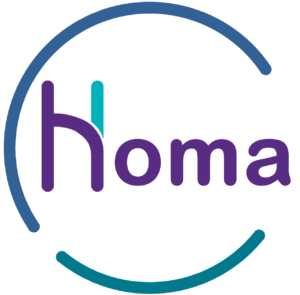
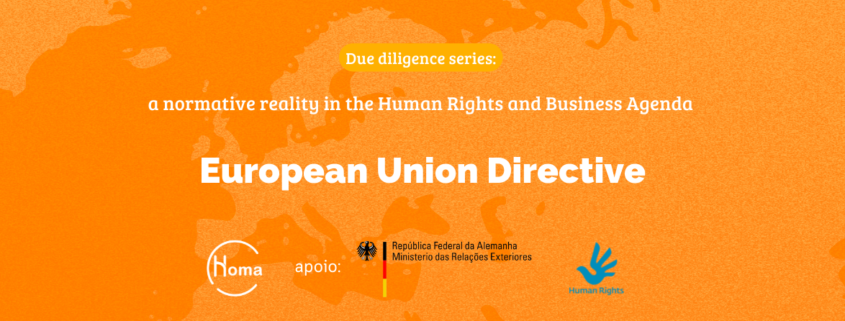
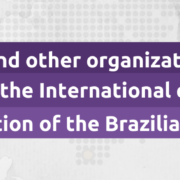

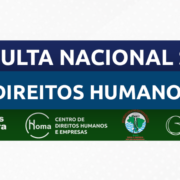
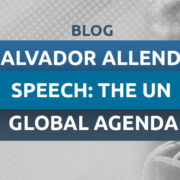
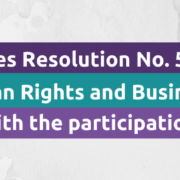
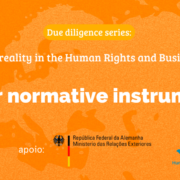
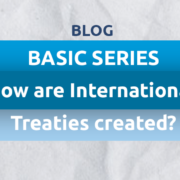
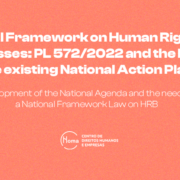


Leave a Reply
Want to join the discussion?Feel free to contribute!